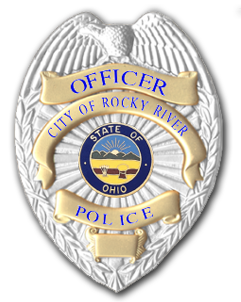The last few weeks have been busy for police executives and elected leaders across the country as we have simultaneously been managing the impact of the novel Coronavirus pandemic; working with community leaders to ensure safe, peaceful, and meaningful protests; and answering inquiries from community members about what our Police Department is doing to prevent excessive force and racially disparate law enforcement.
Over the coming weeks and months, we will share what we have done, will continue to do, and new efforts to maintain and improve the high level of support and confidence the Police Department enjoys from the Rocky River community.
When considering what topic to start with, it seemed reasonable to start at the beginning: recruitment and selection of police officers. Finding interested and qualified applicants is a new challenge. Only 20 years ago, cities like Rocky River limited applicants to 200-300 because there was so much interest; applications for a single test in some bigger cities approached 2000. However, over the last decade, applications have dropped to as low as 20. There are many reasons for this decline, and it is not unique to our region or to policing--fire departments are facing similar declines in interested candidates. It has created a new interest in recruiting efforts nationwide.
Our recruitment and selection efforts are guided by the Ohio Collaborative Community-Police Advisory Board, commonly referred to as The Collaborative (more on that in a subsequent post), Ohio Civil Service laws, and the Rocky River Civil Service Commission. The Police Department has a Recruitment and Selection policy based on these laws and guidelines.
One of the Collaborative standards is Employee Recruitment and Hiring, which includes, among other things:
Compliance with equal opportunity laws
A “comprehensive recruitment and selection strategy to recruit and select employees from a qualified and diverse pool of candidates.”
A background investigation including reference, driving record, employment eligibility, employment history, public information searches, financial history, criminal history, and social media searches.
We have recently implemented more proactive recruiting efforts, including certifying officers to teach at regional police academies (instruction is done on their own time, but it exposes students to our department and staff) and sending officers to job fairs, college criminal justice classes, and police academies to share their experiences.
Rocky River’s City Charter, Section V, establishes a Civil Service Commission and outlines their powers and duties, including the responsibility “for the appointment, promotion, transfer, layoff, reinstatement, suspension, and removal of officers and employees of the City…as provided in the general laws of Ohio, except as may otherwise be provided in this Charter.”
The Civil Service Commission determines a testing and hiring process that is fair and consistent with Ohio law. That includes establishing eligibility, testing, determining and applying extra credit, and approving the entire process. Eligible candidates then go through the following process:
Complete a physical agility test prior to the application deadline
Pass a written examination. Extra credit points are applied to passing scores for honorable military service, college degrees, and prior peace officer certification.
Interview with human resources and police executive staff.
A panel interview with police personnel including command staff and training officers.
Polygraph examination
Background investigation
Certification by the Civil Service Commission
Interview with the Mayor
Conditional offer of employment
Psychological testing
Medical testing
After those steps are successfully completed, a candidate may be appointed by the Civil Service Commission and sworn in by the Mayor to the position of police officer.
Most of our new hires over the last decade have already attended an Ohio Peace Officer Basic Academy. In the first week, new police officers complete administrative work and training that includes equipment qualification, policy review, learning computer systems, and completing other State mandated obligations. Then, they begin a 12-14 week field training program, during which they are assigned to three Field Training Officers (FTO) for about four weeks each. New officers in the FTO program are rated daily and weekly and if they are not responding to training as expected, may have to extend field training, participate in remedial work, or be released.
After successfully completing field training, the new police officer is assigned to solo patrol. While they sometimes respond to calls for service independently, an FTO or senior patrol officer is generally assigned to calls with them to provide guidance, if needed, and continued feedback to supervisors.
Civil service employees are subject to a probationary employment period, which gives employers more latitude when making retention decisions. Our City charter allows a probationary period of up to two years, which is longer than most other civil service employers, and allows for an extended opportunity to review the performance of new police officers to ensure that, as they gain experience and confidence, they remain a suitable fit for our department and community.
Recruitment and selection of police officer candidates is one of the most important decisions we make. The process described above gives us confidence that we are making informed decisions in hiring police officers who will serve our community with pride and dedication for decades to come.
















